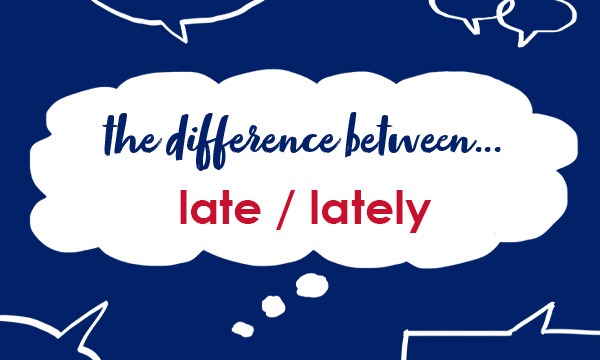This week we are looking at two words which may be confused by learners of English: late and lately.
late

Late can be an adjective or an adverb.
If you are late for something, you arrive after the time that was arranged.
I was ten minutes late for my appointment.
You can also say that someone arrives late.
Etta arrived late.
Note that you don’t say that someone ‘arrives lately’.
lately

You use lately to say that something has been happening since a short time ago.
As you know, I’ve lately become interested in psychology.
Have you talked to Marianne lately?
Find out more in our English Usage article.
This blogpost is based on Collins COBUILD English Usage, written for learners of English. For more examples of English usage points, please visit: https://grammar.collinsdictionary.com/english-usage.
All opinions expressed on this blog are those of the individual writers, and do not necessarily reflect the opinions or policies of Collins, or its parent company, HarperCollins.



